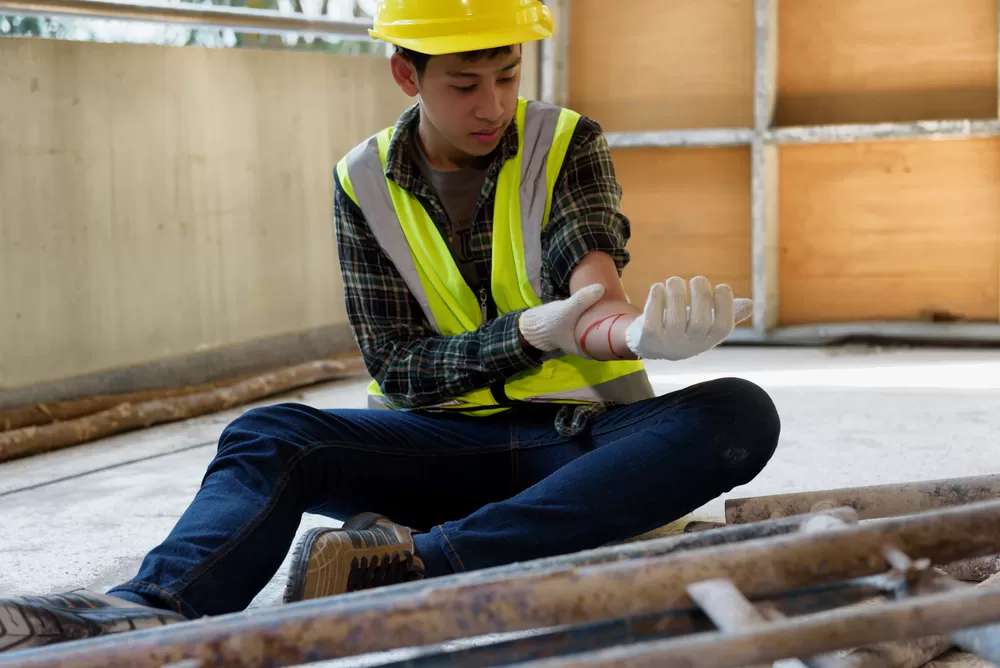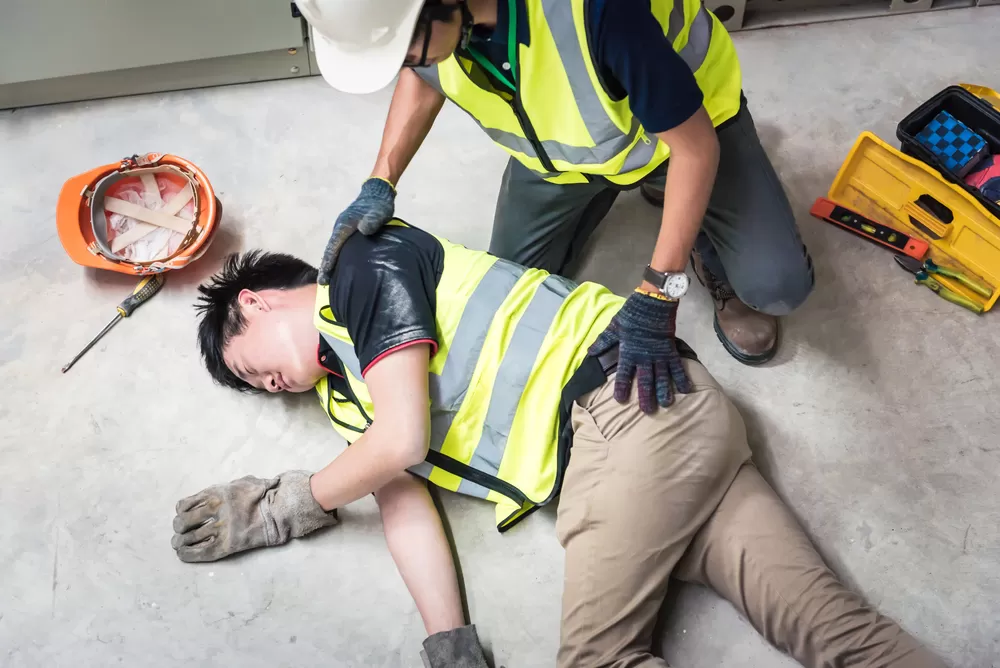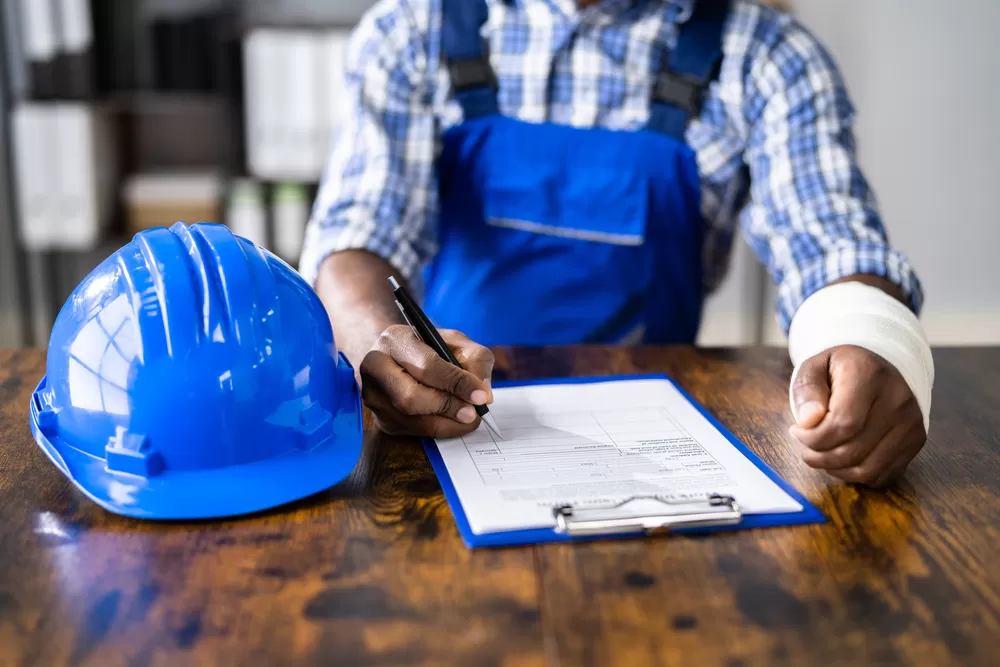Construction workers experience some of the highest workplace injury and fatality rates in the United States, according to data from the U.S. Bureau of Labor Statistics. Injured workers may face long recovery times, high medical bills, permanent disability, and substantial lost earnings. Learning about workers’ compensation in the construction industry will help you recover if you or a loved one sustains an injury or dies while working in construction.
8 Things You Should Know About Workers’ Compensation in the Construction Industry

Because construction workers face substantial risks on the job, it is important to be familiar with how workers’ compensation works in the construction industry. These are eight of the most important things you should know.
1. What Workers’ Compensation Is
Workers’ compensation is a type of insurance that provides financial protection to eligible employees who have work-related injuries or illnesses or die while performing their jobs. Workers’ compensation insurance provides no-fault coverage in exchange for workers forfeiting their right to sue an employer for negligence.
2. Who Is Eligible for Workers’ Compensation in the Construction Industry
Washington, D.C., and Maryland law requires all private employers to either purchase workers’ compensation insurance or self-insure. Virginia employers with more than two employees must have workers’ compensation coverage.
Independent contractors and unpaid volunteers are not eligible for coverage. Additionally, the injury, illness, or death must happen while the employee is working to qualify for coverage.
Because workers’ compensation insurance is no-fault, even employees who cause their own injuries are eligible if they meet the other criteria. However, workers’ compensation does not cover injuries that happen while an employee is commuting to or from work or on a lunch break.
Additionally, employees who intentionally injure themselves, sustain injuries due to violence or criminal activity they started, or injure themselves while under the influence of an illegal substance do not usually qualify for coverage. A workers’ compensation lawyer can help you determine if you are eligible for coverage.
3. Common Types of Construction Industry Accidents

The nature of construction work results in some types of injuries being more common than in other industries:
- Falls from heights
- Injuries from the impact of objects, such as falling tools or materials or moving vehicles
- Injuries from getting caught in or between machinery or vehicles
- Electrocution
- Exposure to hazardous materials
Additionally, because construction work often involves heavy physical labor, workers are prone to injuries from overexertion, overuse, or repetitive stress.
4. Why Workers’ Compensation Is Important in the Construction Industry
The construction industry is one of the highest-risk in the United States. Employees frequently work around heights and large equipment.
Construction workers may handle dangerous chemicals, power tools, sharp objects, explosives, and heavy materials that can cause serious injuries or deaths. Coverage for workers’ compensation in construction ensures that construction workers have financial protection if they experience an injury, illness, or death due to their job.
5. Who Pays for Workers’ Injuries
Usually, if you sustain an eligible injury due to your own actions, the actions of the employer, or the actions of a coworker, workers’ compensation will pay for your injuries. However, if an equipment manufacturer, an employee of another company, or a third party caused your injury, you may be able to file a personal injury lawsuit against the third party.
Most employers purchase workers’ compensation insurance. In this case, the insurance company pays the benefits you qualify for. Employers who self-insure must pay workers’ compensation benefits directly.
6. What Workers’ Compensation in the Construction Industry Covers
Workers’ compensation covers all work-related injuries or illnesses, other than those specifically excluded by state law. However, it can sometimes be difficult to prove that an injury or illness is work-related.
Workers’ compensation pays for medical treatment, loss of income, and burial expenses for the families of eligible employees who die. Workers’ compensation also provides coverage for vocational rehabilitation services, permanent disability, and disfigurement caused by an eligible work-related illness or injury.
7. How To File a Construction Workers’ Compensation Claim

Report the injury or illness to your employer as soon as you discover it. Contact the Workers’ Compensation Commission in D.C., Virginia, or Maryland to file your claim. Your employer may provide you with claim forms or you can get them online.
8. How a Construction Accident Attorney Can Help
Construction sites are unique workplaces because they usually involve multiple parties. Work often happens on the client’s site, rather than at a location your employer owns.
There may be multiple construction companies working on the same job site and each contractor may hire subcontractors. Additionally, injury claims may involve negligence by equipment manufacturers, architects, or engineers.
A construction accident attorney in Washington, D.C. can help you determine who is liable for your injuries and when you should file a workers’ compensation claim or personal injury lawsuit. Your lawyer will be familiar with the workers’ compensation laws and how they apply to your case.
An attorney can also help to investigate your accident or illness and begin gathering evidence to support your insurance claim or personal injury lawsuit. Your attorney may also work with other experts to determine the extent of your injuries and their likely future impact on your ability to work and quality of life.
A legal professional can also help ensure that any settlement you agree to fully covers your expected medical expenses, lost wages, and other damages. This can include negotiating with all of the insurance companies and other parties on your behalf and representing you in court if needed.
Your lawyer will also help you with the appeals process if the insurance company is trying to deny a valid workers’ compensation claim. Working with an attorney allows you to focus on your recovery instead of haggling with insurance companies and lawyers.
Help With Workers’ Compensation in the Construction Industry
The experienced workers’ compensation attorneys at Koonz, McKenney, Johnson & DePaolis, LLP understand how workers’ compensation works in the construction industry. If you have an injury or illness due to your construction job or lost a loved one, we are ready to fight for you. Contact us to schedule a free consultation. We have recovered more than a billion dollars in 40 years of working for clients just like you and you only pay a fee if you receive compensation.

